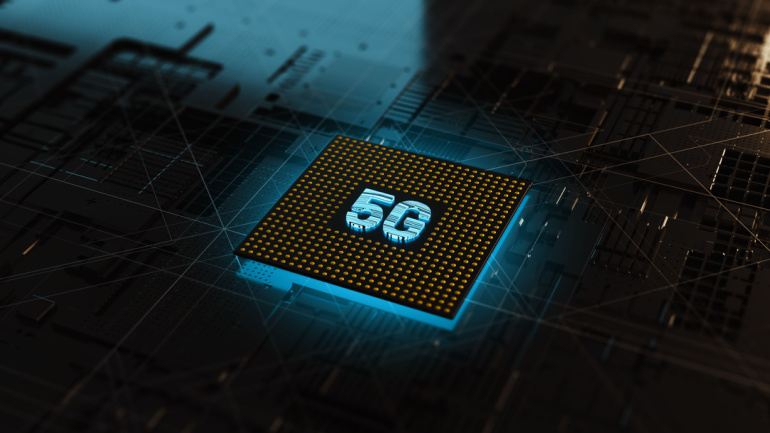The GSMA’s recent State of Mobile Internet Connectivity Report reveals intriguing trends in global smartphone use. While a majority, about 57%, of the global populace now connects to the mobile internet, there’s a stark division in technology adoption. Most users in developed markets rely on 4G or even 5G-enabled devices, while developing regions substantially depend on older 3G and even 2G tech. Surprisingly, the pace of mobile internet user growth also appears to be decelerating. So, how can the world’s telecom industry respond to the challenges of this digital divide? An engrossing discussion waiting to happen at the upcoming Total Telecom Congress!
5G and AI are more than just buzzwords; they’re shaping up to become the backbone of technological breakthroughs. Their ultra-fast capabilities are key for advancements including IoT and intelligent automation. However, with high speed comes high stakes, particularly in the domain of cybersecurity. Yet, despite potential risks, the limitless possibilities offered by 5G and AI, whether it’s efficiency gains or real-time interactivity, are compelling. This combination is set to revolutionize industries, driving anticipation for what lies beyond the tip of this transformative iceberg.
Anticipation builds as the international telecommunication industry readies for the 2023 Global Telecoms Awards, offering a glimpse of the brightest advancements in the sector. This year’s fierce competition promises a thrilling revelation on November 30th, stretching from top-shelf 5G innovations to groundbreaking strides in AI and sustainable telecom solutions. Coinciding with the awards, the Future Vision Executive Summit promises to stimulate discussion on pressing telecom industry topics. Don’t miss out, the future of telecommunications unfolds here.
Thierry Breton, Internal Market commissioner of the European Commission, is advocating for a unified European telecoms market, anticipating advancements in growth, innovation, and swift adaptability to emerging technologies. Arguing against the current market fragmentation, he believes regulatory easing on issues like spectrum acquisition could invite investors to support future networks. Simultaneously, telecom operators suggest cross-border consolidation as a potential path when local financial conditions improve.
Huawei champions the development of 5.5G technology, anticipating significant steps in network infrastructure. Advocating for evolution and readiness, Huawei focuses on 5G-Advanced as a cornerstone of future telecom progression. However, global implementation poses challenges, with promising 5G speeds needing considerable network densification and negative trends in capital expenditure. As such, Huawei and other vendors are pivoting to cater to the enterprise market, favouring an immersive approach in changing market needs, instead of simply relying on network infrastructure investment.
An ambitious €1 billion initiative is underway in Spain to narrow down the digital divide in rural areas, spearheaded by the Ministry of Economic Affairs and Digital Transformation. The project focuses on escalating the presence of 5G technology, committing an impressive €544 million towards standalone deployments. Aimed at areas unlikely to be targeted by private sector network deployments, it accentuates the government’s determination to extend tech revolutions to the unserved regions. With potential applications to various sectors, Spain’s pathway to complete 5G integration could serve as an inspirational model for others in this era of digital transformation.
BT and Immersive Interactive Ltd introduce the Immersive Spaces project across Northern Ireland. This 5G-enabled, interactive simulation offers a variety of experiences and learning opportunities for multiple sectors. The space offers a 360° view through HD projectors connecting to EE’s mobile network. Attributes like real-life scenarios, interactive elements, and sensorial enhancements are plunging users into exciting simulated realities. The technology has applications in training environments and sectors across the board, allowing users to step into realistic or imagined situations. Learn more about this revolutionary platform and its potential.
DIDWW, a global provider of premium quality VoIP communications, two-way SIP trunking and SMS services for businesses and telco carriers, has established its new Point of Presence (POP) in Amsterdam. This latest addition is now ready to deliver robust performance, efficiently handling customer voice traffic and ensuring enhanced connectivity.
In an exciting move, Vodafone and Arm have united to innovate within the telecom industry, developing an adaptable platform with Arm-based processors ideal for Open RAN base stations. Their collaborative effort showcases both parties’ commitment in enriching the competitive Open RAN landscape, offering robust computational power for 5G services and improved energy efficiency. In addition, illustrious companies like SynaXG, Ampere Computing, and Fujitsu are lending their expertise to test and validate this technology. The joint venture also presents opportunities for Vodafone to reach its net-zero targets.
As Malaysia deliberates on Huawei’s engagement in their projected second 5G network, international eyebrows are raised. Clamor for transparency grows louder as the telecom world anticipates waves of change from this decision’s rippling effects.













